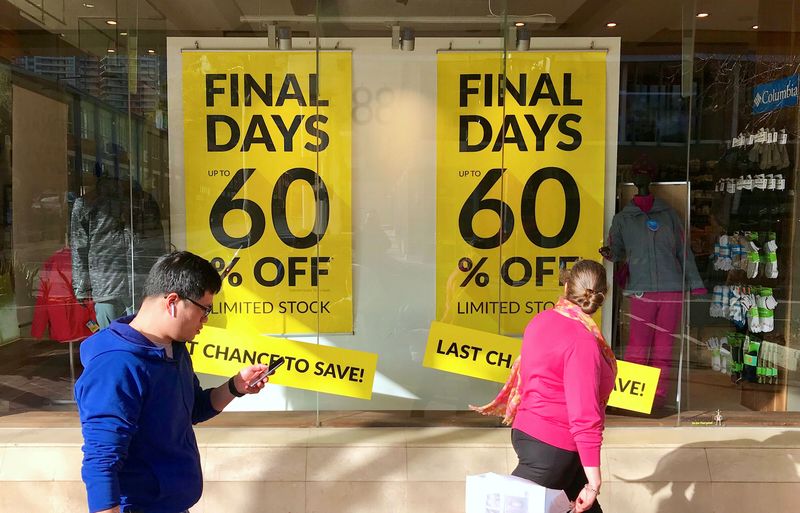By Stella Qiu and Wayne Cole
SYDNEY (Reuters) -Australian inflation slowed to a four-month low in July as government rebates on electricity bills kicked in, but progress on tempering price gains elsewhere disappointed and led markets to pare back the chance of a near-term cut in interest rates.
The consumer price index (CPI) rose at an annual pace of 3.5% in July, down from 3.8% in June, Australian Bureau of Statistics data showed on Wednesday.
The figure was slightly above forecasts of 3.4%, leading markets to slightly lengthen the odds of a first easing from the Reserve Bank of Australia in November to 48.4%, from 58% before.
The Australian dollar rose 0.1% to $0.6803, about the highest this year, and the three-year bond yield was up 4 ticks to 3.559%.
On a monthly basis, the CPI was flat in July from June as electricity prices fell 6.4%, and petrol dropped 2.6%, but rents, food and gas prices rose.
"July's inflation print is full of smoke and mirrors. At face value, the fight against inflation looks to have taken a massive step forward...but some of that improvement came from rebates that artificially lowered the cost of electricity," said Harry Murphy Cruise, an economist at Moody's (NYSE:MCO) Analytics.
"While that makes the headline inflation figure look a whole lot better, prices are ultimately unchanged."
Indeed, the slowdown in headline inflation was due to electricity subsidies from the federal and state governments, which began in the state of Queensland and Western Australia last month, with other states and Territories to follow from August, the statistics agency said.
It estimated that electricity prices in July would have risen 0.9%, excluding the rebates.
NO REAL READ ON SERVICES
The RBA has raised interest rates by 425 basis points to 4.35% since May 2022 to tame inflation. However, the slow decline in underlying inflation, which is only expected to return to the target band by the end of 2025, has led policymakers to rule out a near-term rate cut.
July's report - which is heavily skewed towards goods in the first month of the quarter - showed a closely watched measure of core inflation, the trimmed mean, slowed to an annual 3.8%, from 4.1% in June.
The CPI excluding volatile items and holiday travel dipped to 3.7%, the lowest reading since early 2022, compared with 4.0% previously.
Tapas Strickland, head of market economics at the National Australia Bank (OTC:NABZY), said the July report showed there is not much further progress on goods disinflation.
"Unfortunately, there is no real read on the services side of the economy out of today's print, so it doesn't give you a comprehensive read, but at least on the goods side of the economy it suggests you're not making much progress."
Indeed, goods inflation was flat in the month.

Markets are still fully pricing in a rate cut this year, in part because the Federal Reserve is near-certain to start easing policy next month and more cuts are expected in Canada, Europe and New Zealand.
A surging Australian dollar, which is hovering close to the highest this year, should also help lower imported inflation.